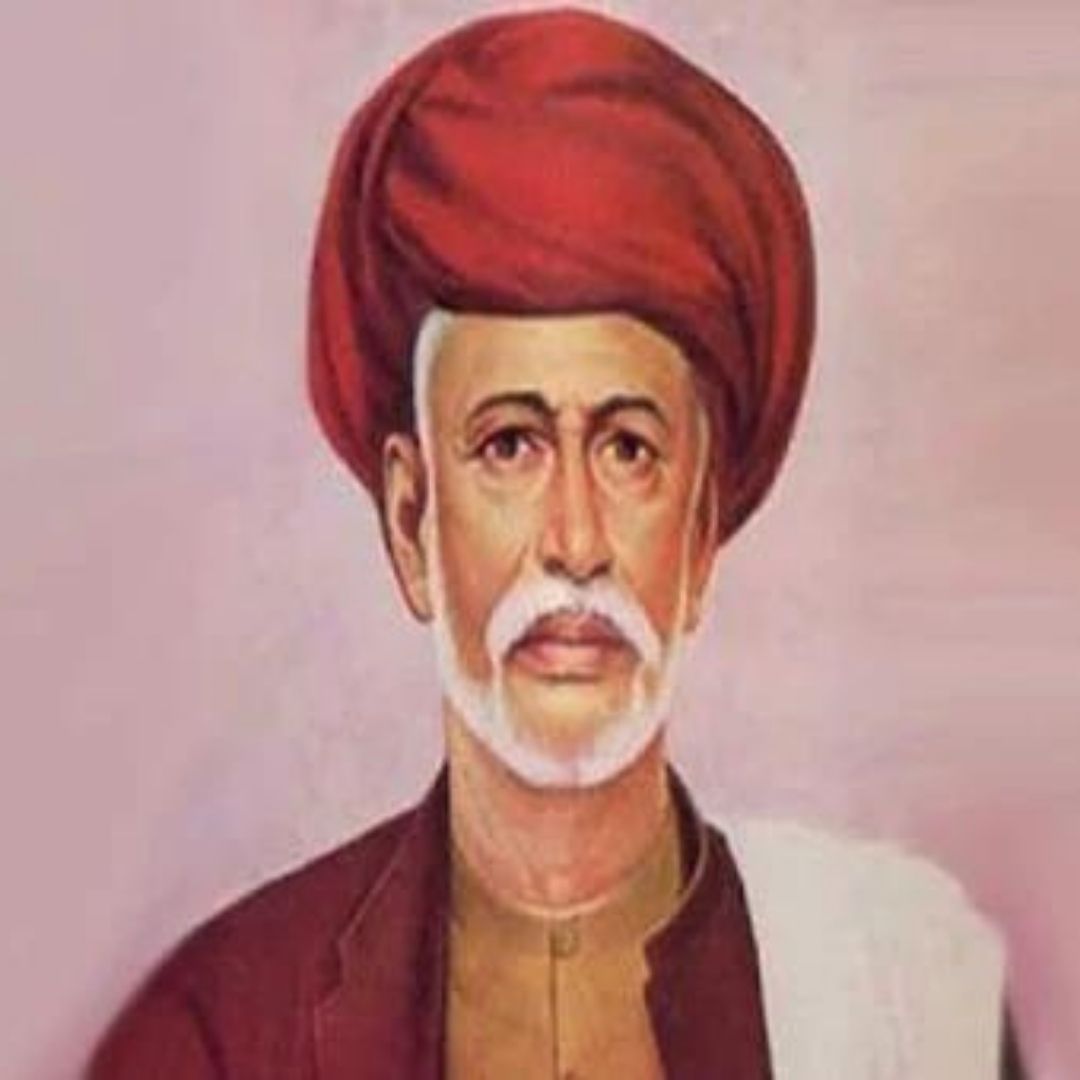
Image Credits: News18
Jyotirao Govindrao Phule, The Man Behind Bringing Radical Reforms For Women Empowerment
India, 29 Nov 2021 10:49 AM GMT
Editor : Palak Agrawal |
Palak a journalism graduate believes in simplifying the complicated and writing about the extraordinary lives of ordinary people. She calls herself a " hodophile" or in layman words- a person who loves to travel.
Creatives : Tashafi Nazir
For most people, journalism sounds hectic and chaotic. For her, it's a passion she has been chasing for years. With an extensive media background, Tashafi believes in putting efforts on presenting a simple incident in the most interesting way.
The social reformer raised his voice against evil practices of untouchability and child marriage. He advocated for women's education at a time when it was still considered taboo.
Nearly 150 years old, an event was organised in Pune to welcome the British prince and grandson of Queen Victoria. All the influential and wealthy people were present at the ceremony. Laden with diamonds and jewels, everyone was ostentatiously displaying their wealth. In this pompous function, a man arrived in the costume of a farmer. In his address, he told the British prince –"People who wear clothes studded with diamonds and pearls do not represent our country because money is more important in their life than bread. If you and the Queen want to know the condition of the Indian subjects, then visit the nearby villages and cities where those people live, who are considered untouchables, with whom it is taboo to socialise. It is deemed impure to take water or food from them or stand closer with these people. I request you to convey this message to Queen Victoria and make arrangements to provide proper education to these poor people. "
Everyone present at the reception was stunned. He was none other than Jyotirao Govindrao Phule who crossed swords with British rule and other influential persons in the country to empower the underprivileged and girls. Jyotirao Phule was born on April 11, 1827, in a family of 'Gajra' makers in Pune. The family is said to have worked as gardeners for a long time. This is why 'Phule' was associated with his name.
This was the time when on one hand, the opposition to British rule was getting stronger in the country while on the other, voices were being raised against social evils such as untouchability and child marriages in the country.
Formed First Girl School In Country By An Indian
When Phule started his studies in Marathi, people near his father ill-advised him that his son would not be of any use by reading. So his father dropped him out of school. But he was very passionate about studies, so he completed his 7th standard from English at 21. He was married to Savitri Bai in 1840. Along with Savitri Bai, he opened a school for girls in Pune in 1848.
This was the first girls' school in the country to be opened by an Indian. When no teacher agreed to teach, Phule first taught his wife Savitri, and then she started teaching other girls. There was an uproar against this endeavour that how a woman could rebel against religion and society by becoming a teacher, according to New India Samachar.
Due to public outcry and financial constraints, the school was closed. But both did not give up. After this, in 1849, two more schools were opened in Juna Ganj Peth and again in 1851 in the Budhwar Peth area. Soon after taking inspiration from Phule and Savitri Bai, 18 more exclusive schools were opened for the women of the underprivileged society. A staunch opponent of Sati and child marriage, the reformer was also a supporter of widow remarriage. He started a widow ashram in Pune and Savitri Bai became its coordinator. Recognising Phule's opposition to child marriage, the British rulers, for the first time in 1872, banned the marriage of girls below the age of 14 by implementing the Native Marriage Act in India.
Justice To Women And Backward Class
Jyotirao Phule founded Satyashodhak Samaj on September 24, 1873. The purpose of this society was to provide justice to women and backward caste people. Phule was the chief president of the society and his wife was the head of the women's department. When he became a member of the Poona Municipality in 1876, he was the only one among 36 members to oppose bearing expenditure by local authorities on welcoming the Viceroy Lord Lytton.
He also undertook public awareness through writing many books. 'Ghulamgiri', 'Tritya Ratan', 'Chhatrapati Shivaji', 'Raje Bhosle ko Pakda', 'Kisan Ka Kora' and 'The Kaifiyat of the Untouchables' are his masterpieces. He died on November 28, 1890.
Phule had thinking which was way ahead of time. The idea behind Beti Bachao, Beti Padhao has its roots in the initiatives taken by him nearly 150 years ago. He believed that illiteracy was responsible for every evil in society. He was a great thinker, selfless social reformer, and revolutionary worker. He worked to demolish the inertia of the Indian social structure. He always fought to bring a change in the life of women and the oppressed in those times when it was a strenuous task.
 All section
All section














